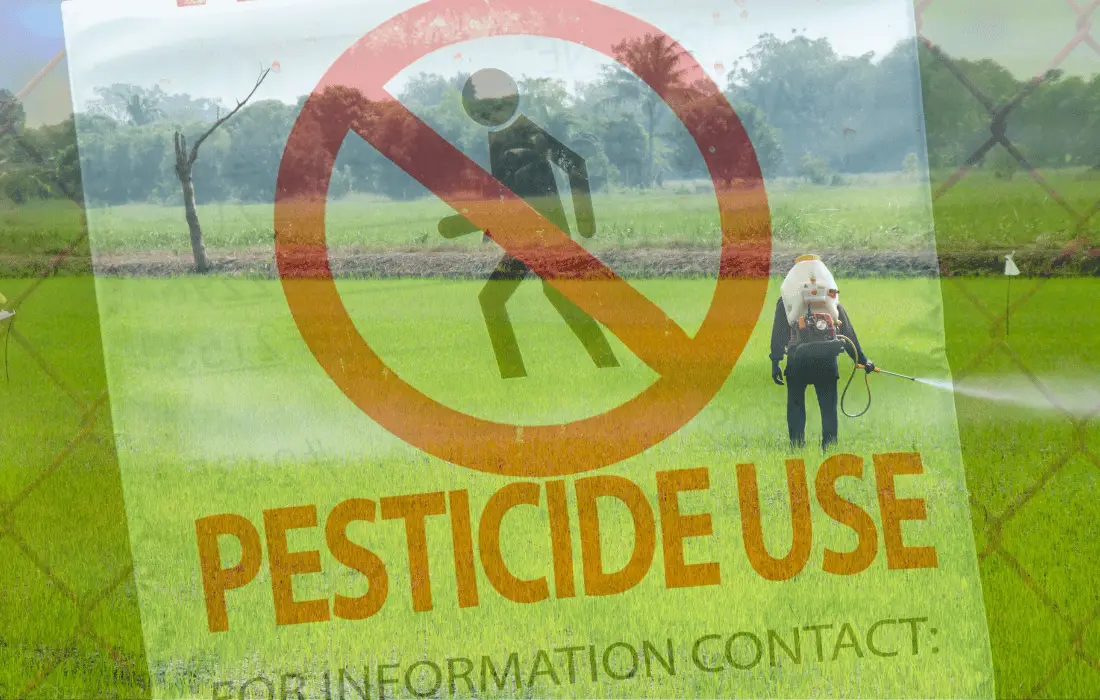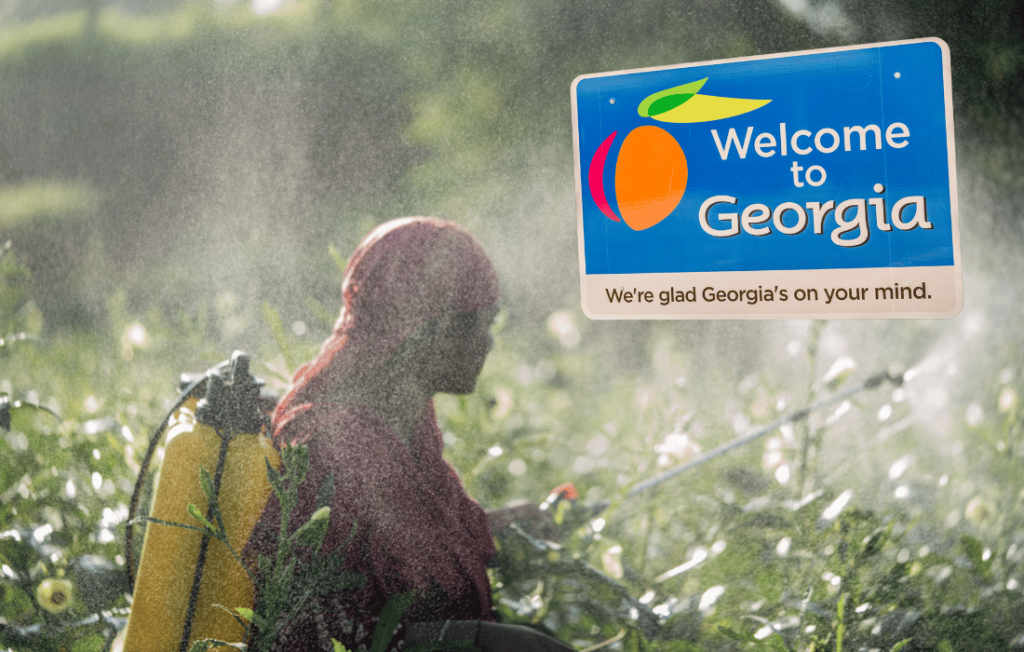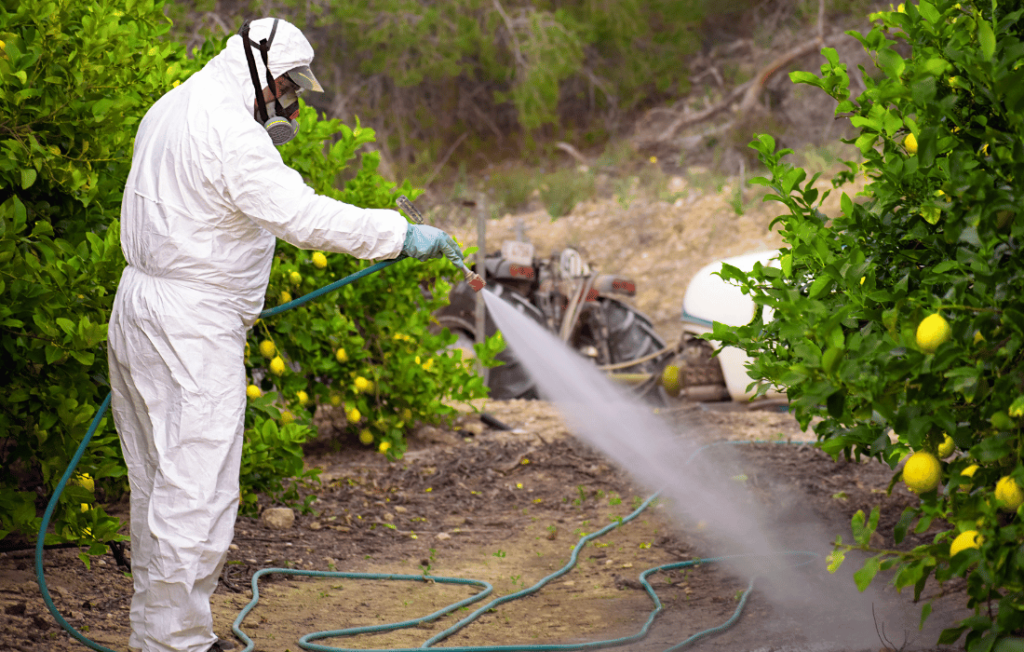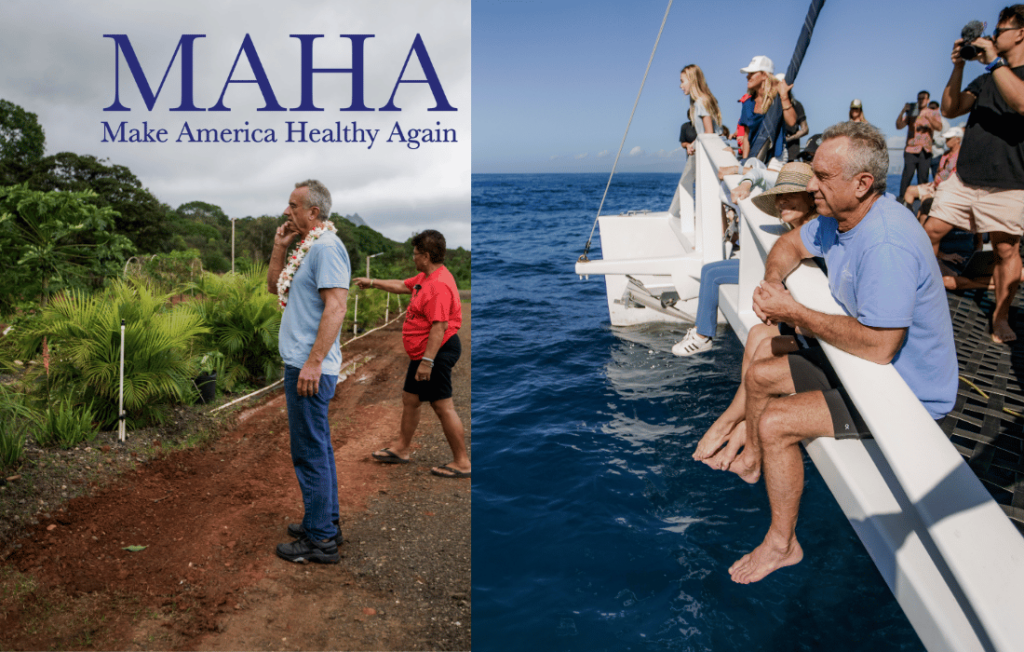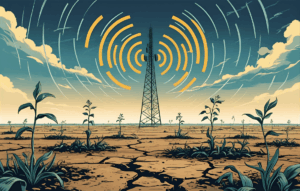The pesticide industry has long been a cornerstone of modern agriculture, credited with boosting crop yields and feeding billions. But at what cost? The introduction of HSB 737 and its companion bill, SF 2412, aims to grant pesticide manufacturers immunity from lawsuits in Iowa. This has sparked fierce debate over the balance between innovation, public health, and corporate accountability.
These bills, if passed, could provide legal immunity to companies like Bayer, known for producing the glyphosate-based herbicide Roundup. Bayer’s acquisition of Monsanto brought a wave of lawsuits alleging that Roundup causes cancer, resulting in multi-billion-dollar settlements. By shielding these companies from future litigation, HSB 737 and SF 2412 may pave the way for unbridled pesticide production—with devastating implications for human health and the environment.
1/2 🚨 Iowa bills HSB 737 & SF 2412 propose legal immunity for pesticide manufacturers like Bayer. This could shield companies from lawsuits over products linked to cancer & Parkinson’s. Public health & accountability are at stake! #PesticideImmunity #HSB737
— kyletothemoon (@tothemoonhealth) January 2, 2025
Understanding HSB 737 and SF 2412
The proposed legislation includes provisions that “for any pesticide registered with the United States Environmental Protection Agency… the label approved by the United States Environmental Protection Agency in registering the pesticide… shall be sufficient to satisfy any requirement for a warning regarding health or safety.”
This means that as long as a pesticide’s label complies with EPA guidelines, manufacturers would be immune from failure-to-warn claims in lawsuits.
Critics have dubbed this legislation the “Bayer Protection Act,” citing its primary beneficiaries: large chemical manufacturers like Bayer and ChemChina (formerly Syngenta), the maker of paraquat, a herbicide linked to Parkinson’s disease. Bayer alone has faced over 100,000 lawsuits and paid $11 billion in damages related to glyphosate-based products as of 2022, with 30,000 more cases pending.
The Hidden Dangers of Pesticides
Pesticides are designed to kill pests, but their toxicity doesn’t end there. Their pervasive use impacts not only the targeted insects but also the broader environment and human health. The chemical properties that make pesticides effective against pests often result in collateral damage to other organisms, ecosystems, and even the food we consume.
1. Immediate Health Risks
Acute pesticide exposure can cause a range of health issues, from skin irritation and respiratory problems to severe poisoning that requires hospitalization. This is especially true for agricultural workers who are regularly exposed to these chemicals without adequate protective measures. In some cases, acute exposure has led to fatalities, particularly in developing countries where safety regulations are less stringent.
2. Chronic Health Issues
Long-term exposure to pesticides is even more insidious. Numerous studies link it to chronic illnesses such as cancer, Parkinson’s disease, diabetes, and asthma. Pesticides like paraquat have been specifically associated with an increased risk of Parkinson’s, while others are known endocrine disruptors that interfere with hormonal balance, impacting reproductive health and potentially leading to infertility.
3. Impacts on Children
Children are particularly vulnerable to the effects of pesticides. Prenatal exposure to pesticides has been linked to birth defects, developmental delays, and lower cognitive function. The American Academy of Pediatrics has emphasized the need for stricter regulations, citing evidence that early-life exposure to pesticides can have lifelong health implications.
4. Glyphosate: A Case Study in Controversy
Glyphosate, the active ingredient in Roundup, has been classified as a “probable human carcinogen” by the International Agency for Research on Cancer (IARC). Research suggests a strong association between glyphosate exposure and non-Hodgkin’s lymphoma, as well as other cancers. Despite regulatory agencies like the EPA asserting glyphosate’s safety when used as directed, mounting lawsuits have revealed a troubling pattern of corporate influence over scientific research and public policy. Glyphosate’s widespread use has also been implicated in soil degradation and contamination of water sources, affecting both human and environmental health.
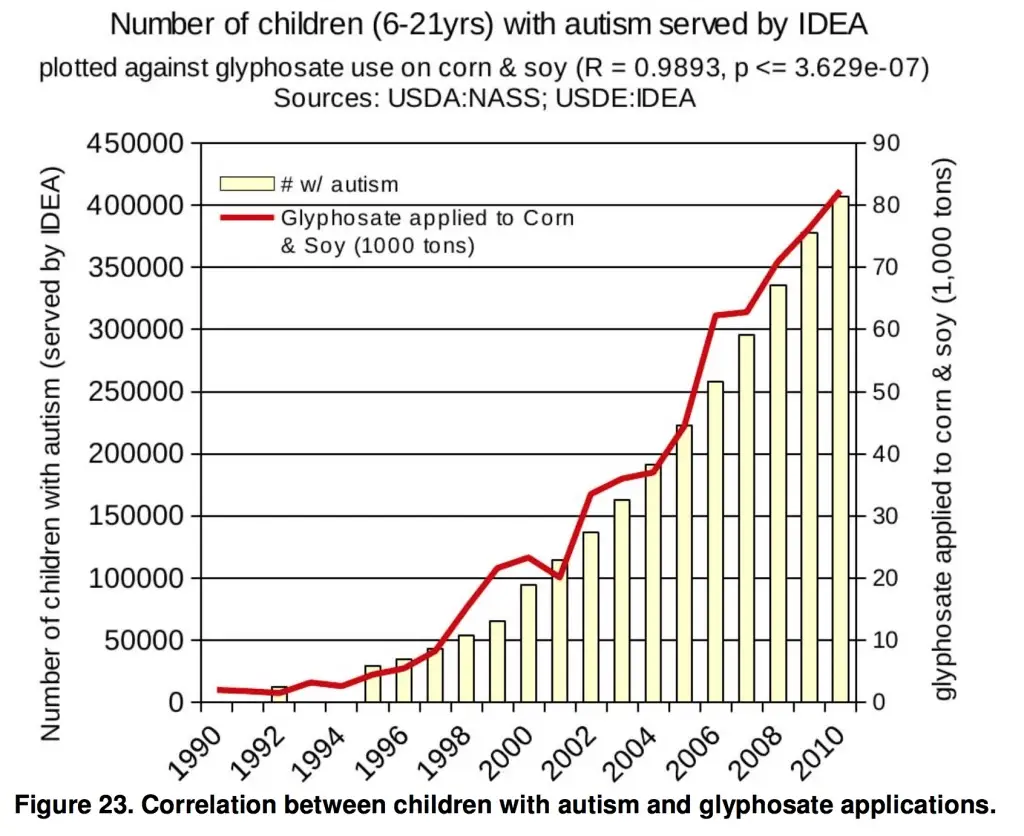
Beyond Glyphosate: Other Toxic Culprits
Glyphosate isn’t the only problematic pesticide. Organophosphates, originally developed as nerve agents during World War II, remain widely used in agriculture. These chemicals are linked to neurodevelopmental issues in children, including lower IQ scores and increased rates of attention-deficit/hyperactivity disorder (ADHD). Furthermore, neonicotinoids, a class of pesticides commonly used as seed coatings, are known to harm bees and other pollinators essential for maintaining biodiversity and crop yields. Their impact on the global food supply cannot be overstated, as pollinator declines threaten agricultural productivity and ecosystem stability.
1. Environmental Degradation
Pesticides wreak havoc on ecosystems. They leach into water supplies, harming aquatic life and contaminating drinking water. Soil health is also at risk; prolonged pesticide use reduces microbial diversity and fertility, ultimately degrading the land’s agricultural potential. This creates a vicious cycle where more chemicals are needed to maintain yields, further exacerbating environmental damage.
2. Residues in Food
Even after pesticides are applied, residues remain on fruits, vegetables, and grains, making their way into our diets. Studies have shown that certain pesticides persist even after washing and cooking, exposing consumers to low levels of these chemicals over time. While individual exposures may seem negligible, the cumulative effects raise significant concerns about long-term health impacts.
3. Global Implications
In many developing countries, the risks of pesticide use are magnified. Weak regulations, lack of protective gear, and limited public awareness result in widespread misuse and overexposure. These regions often bear the brunt of environmental degradation, as contaminated soil and water sources make farming and daily life increasingly hazardous. The global trade of pesticide-intensive crops further perpetuates this cycle, exporting health and environmental risks to distant communities.
Pesticides are designed to kill pests, but their toxicity doesn’t end there. Numerous studies link pesticide exposure to a range of health issues, from cancer to neurodevelopmental disorders, endocrine disruption, and reproductive harm.
Decades of Legal and Ethical Challenges for Monsanto
RFK Jr. got Monsanto to pay out BILLIONS for their carcinogenic herbicide Roundup and he’s brought more lawsuits against the EPA than any other attorney, by his estimate.
— Ignorance, the root and stem of all evil (@ivan_8848) November 18, 2024
THIS is why Big Pharma, the Establishment, and their corrupt media allies are attacking him. pic.twitter.com/kD3K9XW4QH
Monsanto, acquired by Bayer in 2018, has faced decades of legal battles over the safety and environmental impact of its products. These lawsuits often reveal a pattern of negligence and obfuscation. Internal documents unearthed in litigation have shown how Monsanto manipulated scientific studies, suppressed unfavorable findings, and even ghostwrote research to downplay the risks of glyphosate. This behavior underscores a troubling lack of corporate accountability.
For instance, in 2003, Monsanto faced a landmark lawsuit over polychlorinated biphenyls (PCBs), a toxic chemical it produced until the late 1970s despite knowing their environmental and health risks. The case resulted in a $700 million settlement to clean up contamination in Anniston, Alabama, but little changed in the company’s broader safety practices. Similarly, repeated settlements over glyphosate-related cancer claims—such as the 2018 verdict awarding $289 million to a school groundskeeper—have failed to prompt significant reforms in how pesticides are tested and marketed.
The company’s approach often revolves around deflecting blame and leveraging its financial power to outlast litigants. Bayer’s continued defense of Roundup, even after acquiring Monsanto, suggests that legal immunity like HSB 737 would eliminate one of the few remaining checks on corporate behavior.
RFK Jr. and the MAHA Movement
Robert F. Kennedy Jr., a prominent environmental advocate, has emerged as a vocal critic of corporate overreach in the pesticide industry. As a key figure in the Medical and Holistic Advocacy for Health (MAHA) Movement, Kennedy challenges the status quo of regulatory capture, where industry giants like Bayer exert undue influence over agencies meant to protect public health.
RFK Jr. sounds the alarm on HSB 737, a new bill to grant pesticide manufacturers IMMUNITY for poisoning Americans
— Holden Culotta (@Holden_Culotta) December 4, 2024
Chemical companies literally argued they need immunity because lawsuits over the damages caused by their products will “put them out of business.”
RFK: “This is the… pic.twitter.com/kHK35dHLGM
In my recent article, The MAHA Movement: Why RFK Jr. is Getting Mainstream Pushback, I explored Kennedy’s legacy of environmental activism and his fight against corporate control. His critics often label him as “fringe,” but his work on projects like the Hudson River cleanup highlights a career dedicated to holding polluters accountable.
The Hudson River Cleanup: A Model for Accountability
In the 1980s, Kennedy’s efforts with the Hudson River Fisherman’s Association and Riverkeeper organization set a global standard for environmental defense. His litigation against industrial polluters revitalized the Hudson River and inspired the creation of the Waterkeeper Alliance, a global network advocating for clean water. This work underscores the importance of accountability—a principle directly threatened by HSB 737.
Why Legal Immunity is Dangerous
Erosion of Accountability
Legal immunity removes one of the most effective deterrents against corporate negligence. The prospect of litigation encourages companies to prioritize safety, invest in research, and adhere to ethical practices. Without the fear of lawsuits, pesticide manufacturers may feel emboldened to cut corners, prioritizing profits over public health.
Public Health Risks
Communities exposed to pesticides bear the brunt of health consequences. Studies link pesticide exposure to chronic illnesses such as cancer, Parkinson’s disease, and asthma. For agricultural workers, who often handle these chemicals directly, the risks are even greater. By granting immunity to manufacturers, HSB 737 effectively leaves these individuals without recourse.
Environmental Impact
The environmental toll of pesticides is staggering. From pollinator population declines to soil degradation and water contamination, the unchecked use of these chemicals threatens ecosystems worldwide. Legal immunity could exacerbate these issues by reducing incentives for manufacturers to develop safer, more sustainable alternatives.
Chronic Disease: The Engine of Profit
In my article a broader issue of chronic disease perpetuated by systemic corporate practices, I discussed how corporations thrive on the perpetuation of illness. Pesticide manufacturers and Big Ag are no exception. By saturating our food supply with toxic chemicals, they contribute to the rising prevalence of chronic diseases like diabetes, heart disease, and cancer—all of which are lucrative for pharmaceutical and healthcare industries.
RFK Jr. has long criticized this profit-driven model, highlighting the intersection of corporate interests across industries. The same companies promoting pesticides are often linked to processed foods and pharmaceuticals, creating a cycle where they profit from both the cause and treatment of disease.
Transparency and Consumer Trust
HSB 737 also raises concerns about transparency. Without the threat of litigation, companies have less incentive to disclose the long-term effects of their products. This lack of accountability erodes consumer trust and undermines the public’s ability to make informed decisions.
Fighting Back: Advocacy and Action
The fight against HSB 737 is part of a broader battle for health and environmental justice. Advocacy groups like the Environmental Health Trust and Children’s Health Defense, led by RFK Jr., are challenging corporate overreach through litigation, public awareness campaigns, and grassroots organizing.
What Can You Do?
Contact Your Representatives (If You Live in Iowa): It is critical to voice your opposition to HSB 737 and SF 2412. Call or email your State Representative and urge them to vote NO. Personal calls can be especially impactful. Use the following resources to find and contact your legislators:
Support Advocacy Groups: Organizations like Pesticides Action Network rely on public support to continue their work.
Educate Yourself: Learn about the impacts of pesticides and advocate for safer agricultural practices.
Choose Organic: Support local farmers who use sustainable, pesticide-free, and regenerative organic farming methods.
Conclusion: Don’t Let Them Poison Us
HSB 737 represents a dangerous shift in public policy, prioritizing corporate interests over public health and environmental sustainability. By granting immunity to pesticide manufacturers, we risk creating a world where profits trump people, and accountability becomes a relic of the past.
As RFK Jr. has emphasized, this fight isn’t just about pesticides; it’s about the systemic corruption that allows harmful practices to flourish unchecked. The MAHA Movement and similar efforts remind us that change is possible, but it requires vigilance, advocacy, and collective action. Let’s not allow the interests of a few to dictate the future of our health and our planet. Stand up. Speak out. And most importantly, don’t let them poison us.

